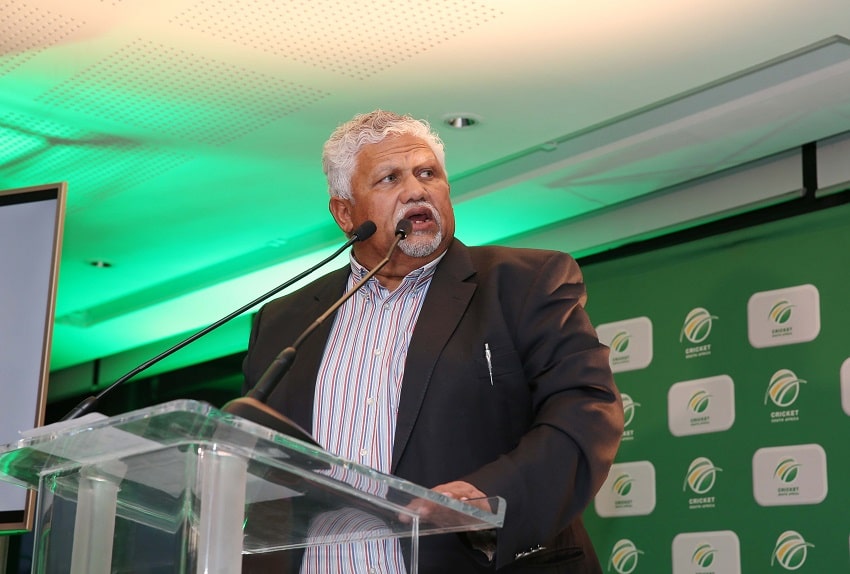Parliament has called for Cricket South Africa board members implicated in the Fundudzi report to step down while further investigations proceed.
The focus was mainly on acting president Beresford Williams, who was asked to leave the virtual meeting between CSA and the Parliamentary sports portfolio committee (PPC) on Tuesday, on the basis of his implication in alleged wrongdoing in the full report.
The committee – who received the full report last Friday – pointed to Williams’ involvement in the appointment of former CEO Thabang Moroe, who, it has emerged, was not qualified for the position, and met none of the key requirements in the job description.
Williams was one of five people on the committee that appointed Moroe. The others – Iqbal Khan, Dawn Mokhobo, Louis von Zuener and Tando Ganda – have all resigned from the board.
‘On the case of the previous CEO, Moroe, what I saw in the report … Moroe did not have the qualifications to become the CEO. I need to understand, how did that slip through the bucket?’ asked committee member Willem Faber. ‘This is why we sit with the situation we sit with. How does it happen, then, that such a person gets appointed as CEO if he did not have the criteria? Those people that let that happen must also be taken on.’
The chairperson of CSA’s risk and audit committee, Marius Schoeman, who led the meeting on CSA’s behalf following Williams’ ejection, agreed that the appointment was irregular.
Furthermore, the summary report, released to the media on Monday morning, implicated Williams of having a conflict of interest in the awarding of a R5-million loan to the Western Province Cricket Association. According to the report, Williams, who was president of the WPCA before becoming acting president of CSA, sat in the finance committee meeting but did not participate on the deliberation and approval of the loan. The report found that he should have recused himself completely.
During their first meeting with CSA last week, the PPC speculated the reason for the delay in handing over the full report was rooted in board members trying to cover up their own wrongdoing. Schoeman denied this was the case, asserting that Covid-19 protocols were the reason for the delay.
However, the PPC raised that issue once more, this time more forcefully, making no secret of its desire to see the board step down while an investigation commences.
Schoeman tried to justify keeping the board intact until the AGM, likely to take place in November or December, by arguing: ‘When the Members’ Council decided not to ask the board to step down [at a meeting believed to have taken place last Thursday], it did not include the Members’ Council that were serving on the board.
‘It is very important that we understand that the board members that are conflicted are definitely not involved in the investigation.’
The PPC’s Tsepo Mhlongo countered this claim, saying: ‘The decision [to retain the board in its current form] is biased and uncalled for. You cannot serve the Members’ Council and the board. There is a conflict at the end of the day. You cannot clean yourself. You cannot redeem yourself. You cannot investigate yourself.
‘We are calling for an independent body to take this report and investigate and come with recommendations.’





